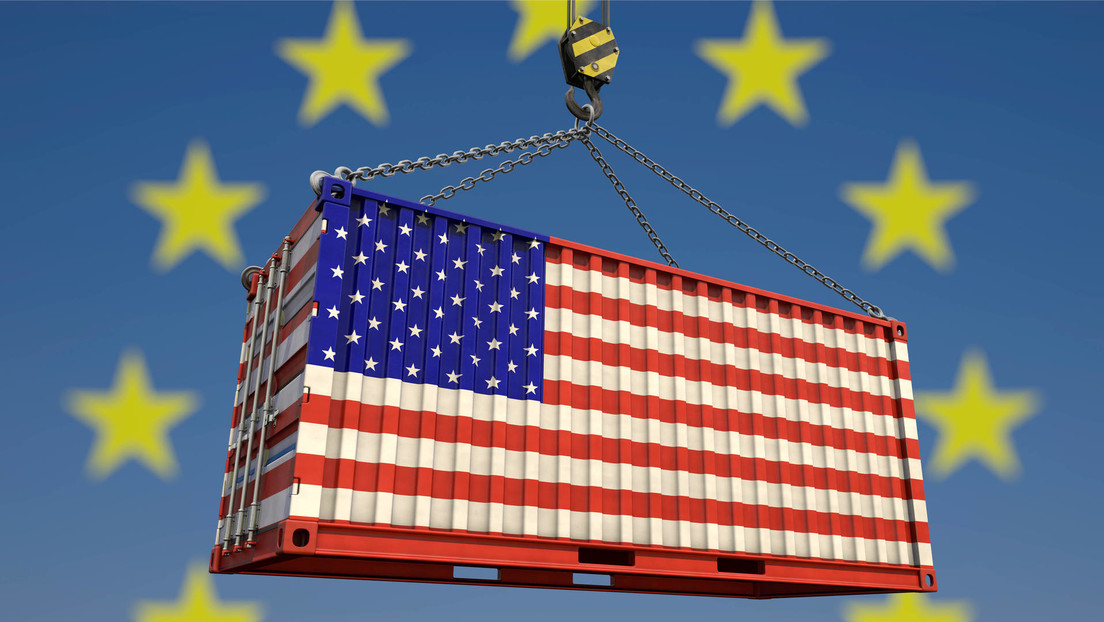
Moscow, April 24.- The European Union would be studying the possibility of imposing strong tariffs on products from the United States and cutting arms purchases from the North American country, as a measure to confront the high taxes imposed by the American president, Donald Trump, reports Politico, which cites more than two dozen unidentified European officials.
"There has been a change in mentality. We have moved from seduction to strategy, and we will make decisions to protect ourselves," said an EU diplomat regarding the EU's attitude toward Trump's tariffs, adding that the bloc must "find a path that works without Washington."
According to Minna Ålander, a researcher on transatlantic defense and security at the Center for European Policy Analysis, the Trump administration seems to think that Europe "is a moribund, futureless continent, incapable of independent action [...] They may soon discover that the opposite is true."
Some European NATO allies are considering diverting their defense investments and foregoing American contracts, thus reducing a lucrative financial agreement on which the North American country depends. Poland, for example, which is the largest buyer of American weapons, would be reconsidering that association, to the point that there are doubts in Warsaw about signing new contracts with Washington.
"Trust in the US has been seriously shaken. I don't think we will make any more major requests from the US arms industry at the moment, after analyzing our experiences in terms of what is happening now," said Pawel Kowal, chairman of the Polish Foreign Affairs Commission. It is time for the country to "diversify" its arms purchases, he added.
However, given that Europe is tightly integrated into the US defense industrial base through decades of acquisitions, finding European alternatives to those systems is not something that will happen overnight, the publication warns.
Although Brussels continues to support a negotiated solution to the imposition of general 20% tariffs on imports from the European bloc, it has already announced that it will implement two sets of tariffs on US products, one of 10% and the other of 25%, in response to the 25% tariffs imposed by the Trump administration on European aluminum and steel.
"At the moment, Europe is focusing on tariffs in response to the levies announced by the US. We are not looking for an escalation, we do not want to fuel confrontation, but we want to be very clear," said a European diplomat.
In addition, talks have been held to discuss whether to apply the Anti-Coercion Instrument, which establishes a procedure in case foreign coercion against the EU is detected. This would imply that the bloc intensifies its response not only by increasing taxes, but also that it dispenses with public procurement and restricts the protection of intellectual property rights.
This would imply that the bloc intensifies its response not only by increasing taxes, but also by cutting off public procurement and restricting the protection of intellectual property rights.
"It has already been discussed at the European Commission level, although that is actually the nuclear option. The decision has not yet been made, but in the Commission it has not only been mentioned, but is being discussed as a possibility," said a European official.
Some European countries are also considering limiting the supply of essential goods or services on which the US depends by imposing tariffs on the export of machinery, electrical equipment, or pharmaceuticals manufactured in Europe, which would put immediate pressure on prices in US supply chains.
"Europe may have some blocking points to confront the US," as it trades in "products that are not easily substitutable," said Swedish economist Fredrik Erixon. And he added that although that would be the last option, due to how intertwined the supply chains between both powers are, "the US is in a bind because it wants to impose general tariffs, while the EU has the possibility of reordering trade flows."
The decisions the EU makes now "could be the first cracks in a dam that could burst wide open, unleashing a torrent of increasingly punitive actions that could ultimately unravel a transatlantic alliance that has united the US and Europe for eight decades and reshape the world order," the publication warns. (Text and photo: RT)